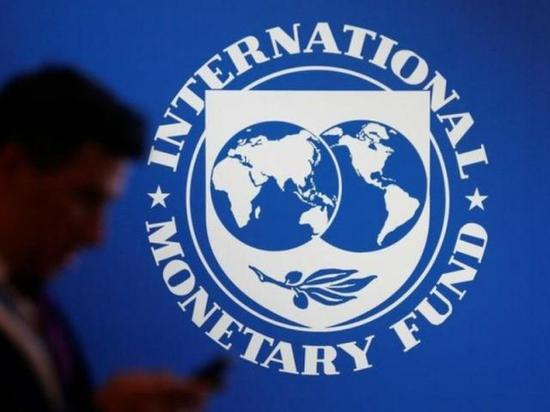
Two geopolitical conflicts remain, the impact of high interest rates persists, and the shadow of high inflation remains... The mixed backdrop seems to portend uncertainty about the direction of the world economy in 2024. However, the International Monetary Fund (IMF) recently released the "World Economic Outlook" unexpectedly showed a relatively bright picture, the global economic growth forecast this year to 3.1 per cent, 0.2 percentage points higher than last October forecast, predicting that the global economy over the "clouds are beginning to disperse".
With the geopolitical crisis still unresolved and interest rates still high in the US and Europe, why is the global economy in 2024 so "positive" in the IMF's eyes?
On the one hand, the growth of China and other major economies is full of resilience and positive policy signals have been released.
China's gross domestic product (GDP) growth in 2023 is 5.2 per cent year on year, higher than the global growth forecast of around 3 per cent, the highest among the world's major economies, and further fiscal and monetary policy easing is expected to stimulate economic growth. Us economic data for the fourth quarter of last year were good, with gross domestic product growing at an annualised rate of 3.3 per cent, presenting the prospect of a "soft" rather than a "hard" landing, and the Federal Reserve is expected to start cutting interest rates this year. Inflation in Europe is falling faster than expected, and the European Central Bank may cut interest rates earlier this year, which will help the economic recovery. The "resilience" shown by the world's major economies has become the main driving force behind the IMF's upward revision of global economic growth in 2024.
On the other hand, high inflation has cooled significantly, with global inflation falling faster than expected.
The IMF believes that under the influence of supply-side problems easing and tightening monetary policies, inflation in most regions is falling faster than expected, and global inflation is showing a continued slowdown trend, which will have less adverse impact on employment and economic activity than expected. It expects global headline inflation to slow to 5.8% in 2024 from 6.8% in 2023, and further to 4.4% in 2025, compared with 4.6% in its October report.
In addition, the United States is entering the election season, which may increase the pressure on the United States to push for a peaceful resolution of the two geopolitical hot wars, raising expectations that the expansion of the conflict is expected to be contained. The IMF report noted that 2024 is a global election year, which usually means that governments will increase public spending, which may partially stimulate inflation, but is more likely to boost economic activity. Rapid advances in AI could also boost investment and spur economic growth.
Despite the positive signals, the IMF warned of potential risks to the global economy. The world economy appears to be heading for a "soft landing," but the recovery remains slow and uneven.
Imf chief economist Pierre-Olivier Guranza said that while the likelihood of a "soft landing" has increased, the pace of economic expansion remains slow and there could be turbulence ahead. He warned that rising geopolitical tensions in the Middle East and continued tensions in the Red Sea could disrupt commodity prices and supply chains, posing an upside risk to global inflation.
Therefore, policymakers should effectively manage inflation to eventually fall to target levels, calibrate monetary policy in the light of underlying inflation conditions, and adjust monetary policy to reduce tightening. At the same time, with inflation falling and economies better able to absorb the impact of fiscal tightening, many countries need to refocus on fiscal consolidation to rebuild budget capacity to cope with future shocks, raise revenues for new spending priorities, and stem the rise in public debt. Most importantly, countries need to strengthen cooperation in addressing the debt problem, avoiding debt distress, creating space for necessary investments, and mitigating the impact of climate change, so as to jointly promote sustainable global economic recovery.

报告显示,中国电力投资加速增长,预计2024年电网基建投资将超过5300亿元。
近日,市场迎来了一则引人注目的消息:工业巨头3M公司(MMM.N)在本周五公布了其季度业绩报告,随后股价飙升至近两年来的
最近,外媒给OpenAI算了笔账,今年可能要血亏50亿美元。
近日,巴黎奥运会和世界铁人三项协会联合发布了一项重大决定,宣布因塞纳河水质污染问题,原定于近期进行的奥运会铁人三项首次下
当地时间7月18日,法国巴黎发生了一起令人震惊的持刀袭警事件。
近期,一则重大消息在国际舞台上引起轩然大波,马来西亚宣布加入金砖国家。
调查发现,互联网和智能手机的使用干扰了韩国近五分之一学生的生活。